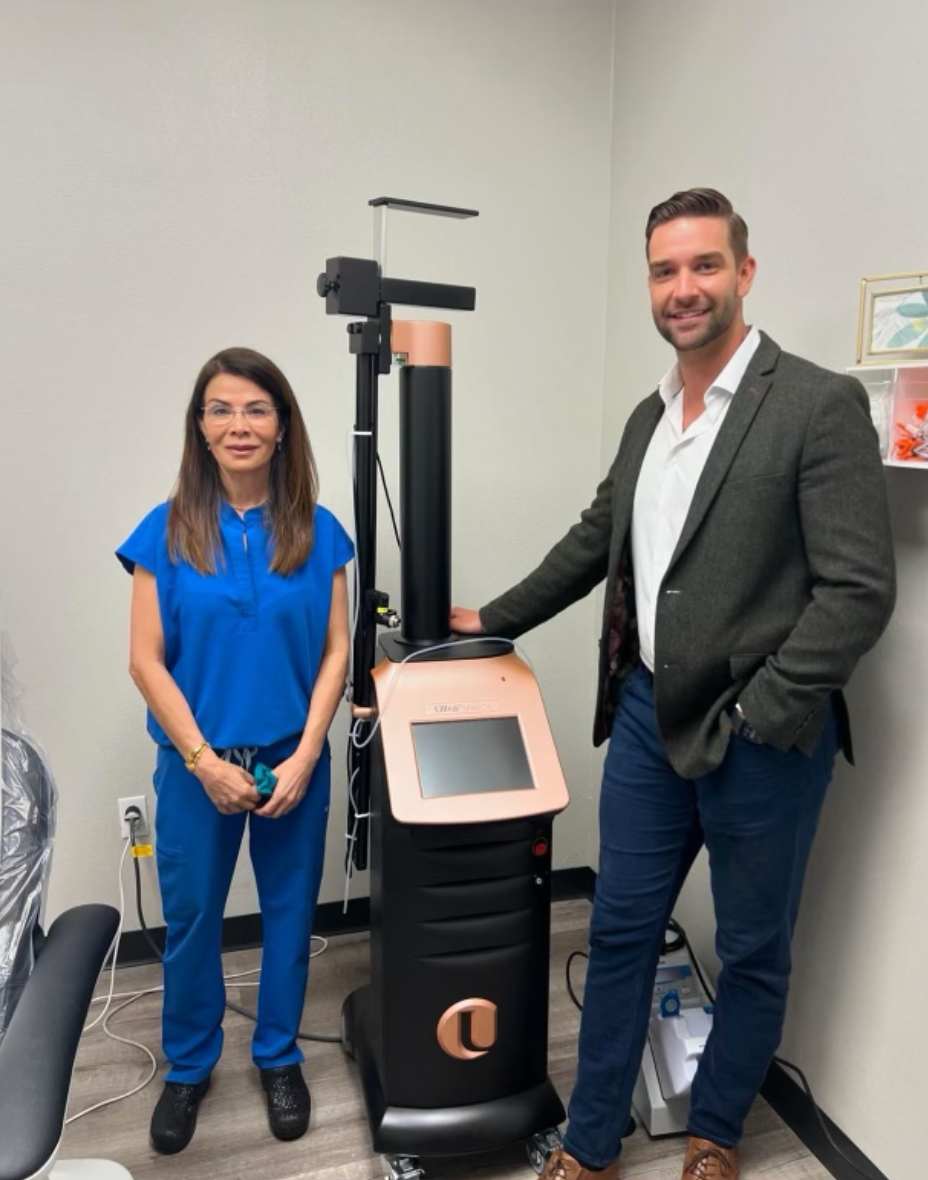Achieving radiant, healthy skin requires more than just basic over-the-counter products. While drugstore brands can be helpful for minor issues, they often don’t contain the potent active ingredients necessary for long-lasting results. That’s where medical-grade skincare comes in, offering a scientifically backed solution that dives deeper into skin concerns like aging, acne, and pigmentation.
So, what makes medical-grade skincare so special? Let’s dive into why these products deliver superior results and how they can be tailored to meet your unique skin needs.
What Is Medical-Grade Skincare?
Medical-grade skincare is a category of products that contain higher concentrations of active ingredients and are formulated to penetrate deeper layers of the skin. These products are often available only through licensed medical professionals or medspas like ours because they are considered potent enough to produce clinical-grade results. Unlike over-the-counter (OTC) products, medical-grade skincare is subject to rigorous testing and research, ensuring that its claims are backed by science.
One of the key differences is how the active ingredients work. For example, while an OTC retinol may only affect the surface layer of the skin, a medical-grade retinol penetrates more deeply, stimulating collagen production and cellular turnover, which helps to reduce wrinkles and improve skin texture over time.
Common Active Ingredients in Medical-Grade Skincare
One of the hallmarks of medical-grade skincare is its use of proven, effective ingredients in therapeutic doses. Some of the most popular ingredients include:
- Retinoids (Vitamin A derivatives): These are excellent for promoting cell turnover, reducing fine lines, and improving skin texture. Prescription-strength versions like tretinoin are only available through a healthcare provider.
- Vitamin C: Known for its brightening properties and antioxidant effects, Vitamin C helps neutralize free radicals that cause premature aging and sun damage.
- Peptides: These are essential for promoting collagen production, which gives the skin its firmness and elasticity.
- Hyaluronic Acid: This moisture-binding molecule is key for maintaining hydration, which plumps the skin and reduces the appearance of fine lines and wrinkles.
- Alpha Hydroxy Acids (AHAs) and Beta Hydroxy Acids (BHAs): These exfoliating acids help remove dead skin cells, unclog pores, and reveal fresher, smoother skin underneath.
Why Choose Medical-Grade Over Drugstore Products?
The main difference between medical-grade and OTC products is efficacy. While drugstore products are designed to be used by the general public and are limited in concentration to avoid irritation, medical-grade skincare is tailored for more significant results. This means faster improvements in issues like hyperpigmentation, fine lines, acne, and overall skin texture.
With OTC products, you might see minimal results, but these often plateau after a certain point. Medical-grade products, however, can be customized to your skin’s needs and adjusted over time as your skin improves. This personalization, combined with stronger formulations, results in noticeable changes that are both long-lasting and more effective.
The Role of Professional Guidance
Using medical-grade skincare without professional guidance can be overwhelming, and in some cases, it may even cause irritation or worsen skin issues. That’s why it’s important to consult with a licensed medical professional or skincare expert before beginning any new skincare routine. During your consultation, we’ll assess your skin type, concerns, and goals before recommending the right products for you.
Regular check-ins with your provider will ensure that your regimen continues to evolve as your skin improves. This personalized approach guarantees that you get the most out of your medical-grade skincare products, without wasting time or money on ineffective treatments.
Combining Skincare with Professional Treatments
For optimal results, it’s beneficial to combine medical-grade skincare with professional treatments like chemical peels, microneedling, or laser therapy. These treatments help to enhance the effects of your skincare products by exfoliating the skin, stimulating collagen, and targeting deeper layers that creams and serums can’t reach.
For example, chemical peels can improve skin texture and tone by removing the top layer of dead skin cells, allowing your medical-grade products to penetrate more effectively. Similarly, laser treatments can help target pigmentation or vascular issues, working in harmony with brightening serums to give you glowing, even-toned skin.
Consistency Is Key
One of the most important factors in achieving glowing skin is consistency. Medical-grade skincare takes time to work, but the results are worth it. Regular use of these products, combined with professional treatments and a personalized routine, will lead to long-lasting improvements in your skin’s health and appearance.
If you’re ready to take your skincare routine to the next level and experience radiant, healthy skin, schedule a consultation with us. Let’s create a customized plan that works for your unique needs, so you can enjoy the benefits of medical-grade skincare.


